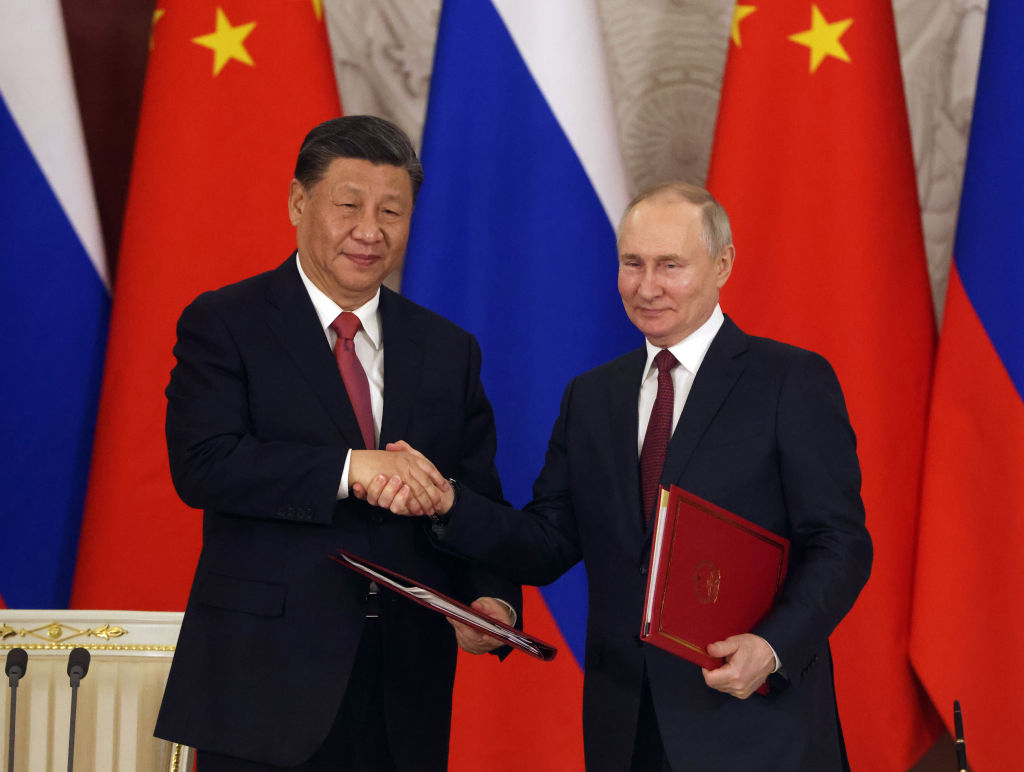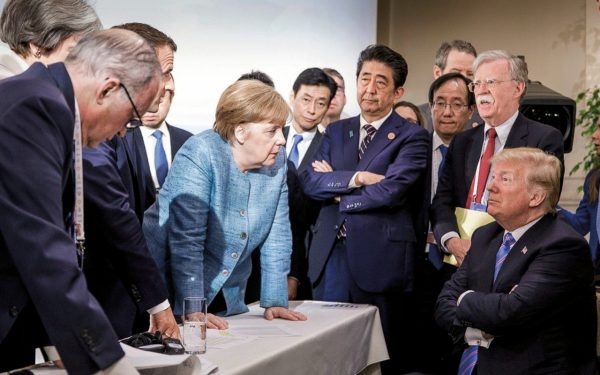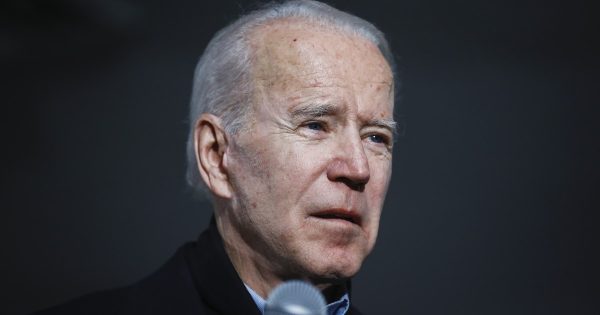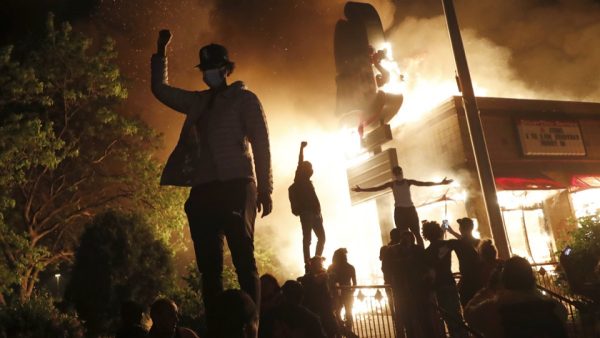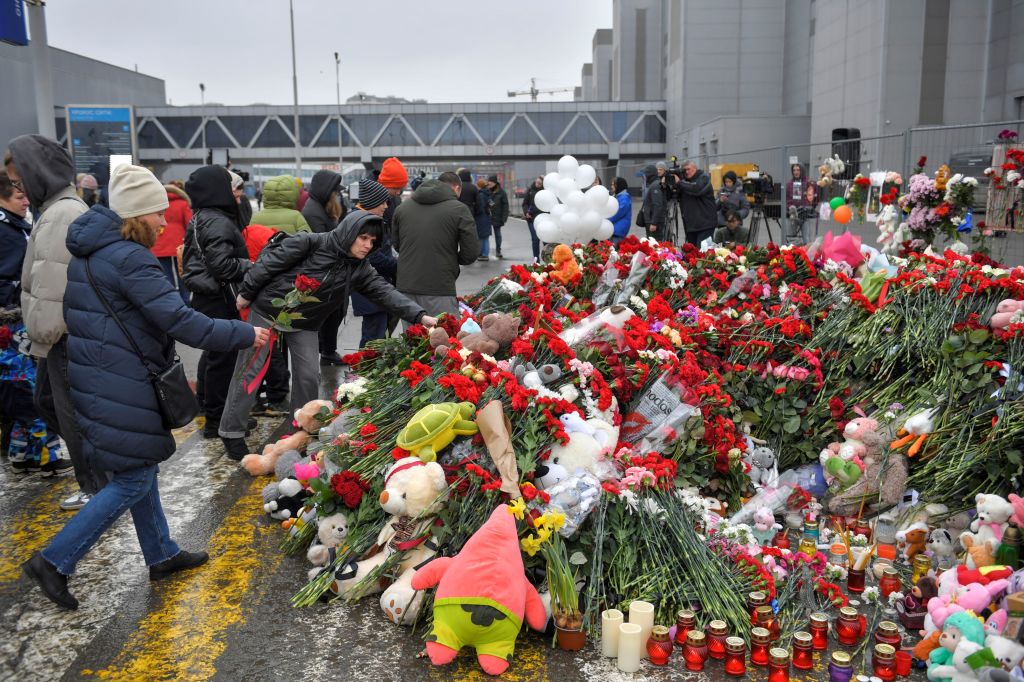The U.S. is rapidly liquidating its position as the world’s foremost superpower.
For Western Eyes Only
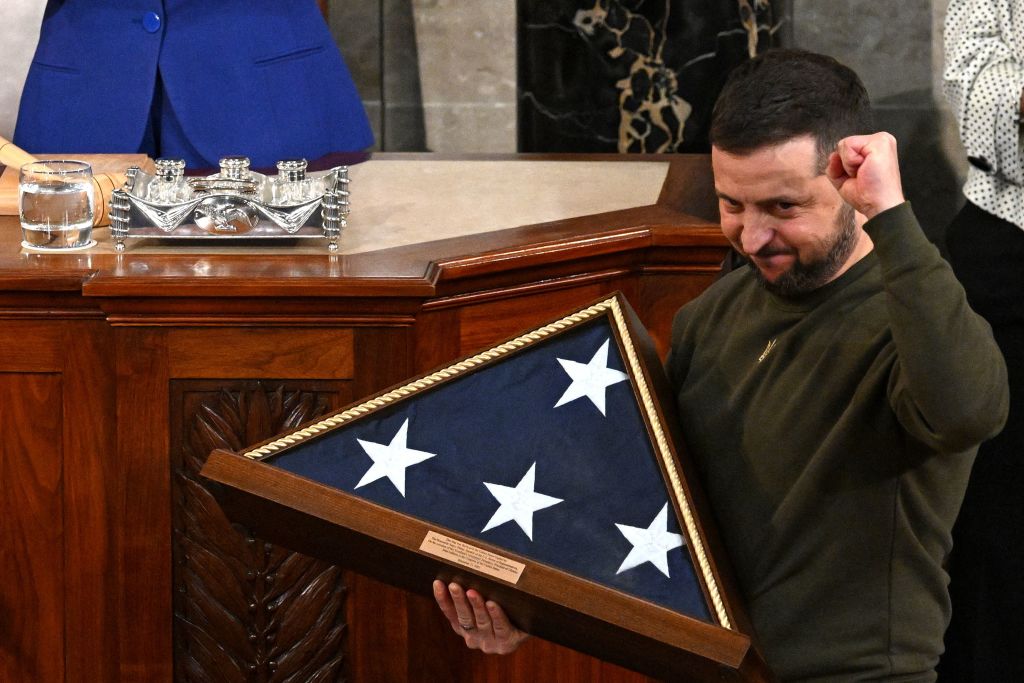
Ukraine’s counteroffensive is increasingly aimed at ginning up greater levels of U.S. backing.
Evaluating the success of the Ukrainian counteroffensive is, like everything else related to the ongoing war in Eastern Europe, complicated. Most honest observers of the conflict have concluded that the traditional strategic ends of a large-scale military operation—capturing major swaths of enemy territory, inflicting unsustainable levels of casualties while depleting the opponent’s materiel, and seriously threatening critical infrastructure—have not been accomplished to a significant degree.
However, it may be premature to declare the counteroffensive a failure. If war is politics by other means, then the status of the ongoing operation should not be evaluated in terms of territorial progress, nor even the appearance thereof. Rather, it must be considered according to the overarching strategic end to which all of Kiev’s efforts are directed: ensuring continued—and deadlier—Western support. On this front, the recent letter by Republican Senators Tom Cotton, Lindsay Graham, Susan Collins, and Roger Wicker demonstrates Ukraine’s effectiveness as a strategic actor.
Its ability to provide talking points to the narrow fraction of the Western audience that is responsible for maintaining its geopolitical lifeline is impressive. The slow creep eastward of Ukraine’s armed forces appears to be enough to guarantee continued Western involvement, as the senators’ letter proves. But this will nonetheless not lead to what the letter suggests. Simply put, the main premise of its argument—that longer-range weapons will enable the type of traditional strategic success mentioned above—is not borne out by the facts on the ground.
At present, serious fighting is centered around Klishchiivka in the Donetsk Oblast and the town of Robotnye in Zaporizhzhia. Both regions have seen relatively minor changes in the frontline—a back and forth over contested blocks or captured fields and tree lines. Major breakthroughs in either or both of these oblasts could threaten Russia’s land bridge to Crimea, and with it Moscow’s control over the Sea of Azov. Alas, hopes of driving deep into Russian-held territory and putting the naval base at Sevastopol, or the broader peninsula, in the sights of a major offensive operation have largely dissipated. Ukraine was finally able to puncture Russia’s first defense line in the southeast, including the total capture of Robotnye, only after three months of a slogging give and take between the two sides.
That is not to say that an autumn salient might not still be in the offing for Ukraine. A strike from the direction of Robotnye or an assault from the Ukrainian-held positions surrounding Russian-held Bakhmut (around the area of Klishchiivka) could still recapture territory for Kiev, thus keeping the grinding offensive inching forward. Meanwhile, Russian forces massing further north closer to Kharkiv, around the towns of Kupiansk and Kreminna, may even portend a future Russian counteroffensive. Ukrainian forces are undoubtedly tenacious fighters who have been able to achieve tactical victories against Russian troops. Nonetheless, the probability that any of these confrontations will lead to major changes in the current lines is still not high.
That is because the conflict must be understood primarily as, somewhat paradoxically, a Russian defensive war. This is not intended to justify the Russian invasion of Ukraine; rather, it is an honest appraisal of events as they currently stand. Any other goal stated by Moscow at the beginning of its operations has either been jettisoned as strategically infeasible due to fierce Ukrainian resistance or was proposed solely with the intention of affecting Kiev’s decision-making calculus at the negotiating table. The Kremlin’s overriding imperative is holding major territory in the four eastern oblasts that provide Russia with its land bridge to Crimea. This is especially true given the unsecure position of the Kerch Bridge, which connects Russia proper to the peninsula. The structure has already been the target of a number of Ukrainian missile attacks. If Kiev increases its long-range strike capabilities—a very real possibility, as discussed below—it could totally disable the bridge. This would be a major strategic blow to Moscow.
Even if Russian forces are sustaining a higher level of attrition in terms of both casualties and materiel—which is by no means clear at this point—its military industrial capacity, along with the sheer number of men who can be mobilized, gives Moscow an advantage. A toe to toe match will always favor the larger and stronger fighter. On the other hand, Kiev’s political goals as currently stated are, at the very least, the total recapture of all Russian-held territory that corresponds to the 1991 borders. Indeed, it appears that these extremely ambitious ends have only expanded in recent months.
For Ukraine and its supporters, the war has increasingly become equated with an ethnic struggle against a foreign “Muscovite” invader that must have its leadership wiped out to ensure peace. Dmytro Natalukha, Chair of the Committee for Economic Affairs of the Parliament of Ukraine and a member of the Parliamentary Assembly of the Council of Europe, argued as much in a recent issue of Foreign Affairs: after the recapture of all Russian-held territory, Western leaders should be expected to install a puppet government in Moscow so that “post-Putin Russia will have the consent of Ukraine.” Unless there is a domestically-orchestrated palace coup in the Kremlin, such a scenario would require the invasion of Russia and the total collapse of its armed forces—in other words, a large-scale coalition war in which tens of millions would perish.
But even the slightly less extreme goal of recapturing all Russian-held territory would mean major offensive operations to take and hold heavily-fortified areas that are now fully incorporated into the defensive network of Russia proper, not to mention subdue a largely hostile population. This would require two things: a steady stream of funding and more and deadlier Western-supplied weapons. Contrary to what some commentators say, it is not essential for Kiev to demonstrate serious operational success for the West to keep the spigot of money and arms open. Rather, Ukraine simply needs to demonstrate it can inflict steady casualties on Russian troops and threaten Moscow’s Black Sea Fleet. Incremental territorial gains that coincide with destructive strikes on targets situated within Crimea would provide the necessary talking points for U.S. policy makers to legitimate the decision.
U.S.-supplied HIMARS have been extremely effective at increasing the deadliness of Ukraine’s military strikes. Likewise, recent attacks on Crimea will also be increasingly referenced as justification for providing longer-range weapon systems to Kiev. U.K. Storm Shadow cruise missiles were used in the September 14th attack that inflicted serious damage on Russian naval vessels in its shipyard at Sevastopol. This was immediately followed by another assault in which Ukrainian-made Neptune missiles and FPV drones targeted aerial defense systems in Crimea. Western sources report that at least one S-400 or S-300 system was likely destroyed as a result.
As the very first sentence of the senators’ letter demonstrates, equipping Kiev with ATACMS (Army Tactical Missile System) is the next logical step in continuing Ukraine’s war effort. If, as Senator Graham has previously stated, supplying the means to kill more Russians is the “best money we’ve ever spent,” then showcasing the ability to inflict serious pain on Moscow is an effective premise for greater support. Indeed, providing these long-range weapon systems will increase Kiev’s capability to threaten Russian logistical centers deeper in its own territory. Russia will obviously react in a significant manner if the latter conditions begin to materialize.
Returning to the discussion of means and strategic ends, it becomes clear that any Russian escalation against Ukraine at this point is therefore—again, somewhat paradoxically—strategically advantageous for Kiev. That is because of the second requirement for Ukraine to accomplish its political objectives as they currently stand: more men.
Retaking all Russian-held territory will not be possible if Ukraine continues to sustain its current casualty rate, regardless of whether or not it receives more advanced long-range weaponry from the West. That is not to provide a canned realist response about how “Kiev is a rational actor”: the Ukrainian nation may very well be willing to fight to the last man to meet its war aims and expel all Russian forces from the territory they currently hold. As willing as its fighters may be, however, Ukrainian leadership also recognizes that it will never accomplish the latter without more men. Barring a massive influx of foreign volunteers, this will eventually require other nations to provide large contingents of conventional troops.
Despite the hate that Western political leaders harbor for Russia and Vladimir Putin (and they do undoubtedly hate him), such a move could never proceed with the required level of public support unless the regime in Moscow can be portrayed as an existential threat to the world. The necessary lynchpin in this is, of course, the United States. In short, the “Putler” thesis—that Putin can be equated to Adolf Hitler and the ethnically Russian far east regions of Ukraine are but the first domino in Moscow’s incremental strategy to expand the imperial Russian yoke ever westward in a genocidal march across Europe—must become widely accepted to the point that the U.S. is willing to send its sons (mostly from the ranks of the deplorables, who are the least likely to buy that story) to once again fight and die in a foreign land. (Ukraine’s new transgender English language “official spokesperson of the Territorial Defense Forces of the Ukrainian Armed Forces” is not likely to move the needle of support among the military age male demographic.)
Ukrainian President Volodymyr Zelensky clearly articulated this thesis during his recent sit down with CBS News anchor Scott Pelley during an episode of 60 Minutes. “The whole world has to decide whether we want to stop Putin, or whether we want to start the beginning of a world war,” Zelensky said. “[Russian society] elected him and raised a second Hitler.” The clear implication of the latter statement is to attribute blame to the Russian people specifically, not just its leadership; this is a necessary step to expanding beyond a limited operation with specific ends to the type of total war that destroying Moscow’s leadership would require. He then went on to state that “we are fighting with a nuclear state that threatens to destroy the world,” and “if Ukraine falls, Putin will surely go further,” Zelensky continued. “If Ukraine falls, what will happen in 10 years? Just think about it. If [the Russians] reach Poland, what’s next? A Third World War?”
Even if Russia wants to do this—a big if given the extreme strategic risks and little relative gain of invading further west—such a move would not be feasible given the sheer material conditions of what Zelensky is proposing.
Nonetheless, a large group of political ideologues in the U.S. media—and likely even a number of sitting politicians—almost certainly share this calculus. If Kiev can escalate to the point of inducing a large enough Russian reaction that passes some as-of-yet to be defined threshold, then a proposal for greater Western involvement up to and including the deployment of U.S. troops to Ukraine could be forwarded. It remains to be seen whether the regime’s corruption has awakened the political consciousness of the American people to the point that they would not abide such a move. The objection that Washington is simply using Kiev as an instrument to weaken Russia and will allow Ukraine to implode once it is entirely spent is not unreasonable. It is also very possible that Ukrainian leadership has been merely employing rhetorical flourishes to convince the West to provide it with something like a NATO Article 5 collective security guarantee. However, all of these scenarios are still risky as certain U.S. vested interests who hold significant sway will always push for more escalation no matter the circumstances, and the lines of provocation for Russia remain blurred.
While one may simply want to wish the Ukrainians’ success in their endeavor, and even support a certain amount of aid, greater U.S. involvement almost seems a foregone conclusion. This is especially true as the war continues taking on a more ideological tinge, with the supporters of Democracy Inc. approaching it as a Manichean struggle between good and evil—progress and reaction. The notion that Russia cannot be negotiated with or that a workable settlement cannot be reached is only attributable to political radicalism. Americans are not crazy, heartless, or shortsighted to foresee yet another sinking pit of U.S. blood and treasure. The host for this parasitic endeavor would be the same as it always is: a riving heartland and a demoralized people.
Our leaders unfortunately seem incapable or unwilling to grasp this point. The recent letter by the Republican senators says as much. They seem to believe that the dropping approval rate of unending and exacerbating U.S. support for Ukraine—especially among the voters and constituents who they claim to represent—is irrelevant for foreign policy decision-making.
In his upcoming trip to Washington, President Zelensky will continue to depict the war as a shared endeavor against geopolitical revisionism that threatens the entire world. We can expect Democrats to once again fawn and swoon as they wave a foreign nation’s flag in the halls of American power.
Meanwhile, the growing number of Americans who question what their own banner really stands for will yet again be left without a champion—for now.
The American Mind presents a range of perspectives. Views are writers’ own and do not necessarily represent those of The Claremont Institute.
The American Mind is a publication of the Claremont Institute, a non-profit 501(c)(3) organization, dedicated to restoring the principles of the American Founding to their rightful, preeminent authority in our national life. Interested in supporting our work? Gifts to the Claremont Institute are tax-deductible.
Excerpted from Edward J. Erler's new book.
Notes from the convention that wasn’t.
Joe Biden accepts his party’s euthanization.
Woke aggression won’t stop with speech.
The increasing likelihood of an attack in the U.S. should make us consider how we will answer.

